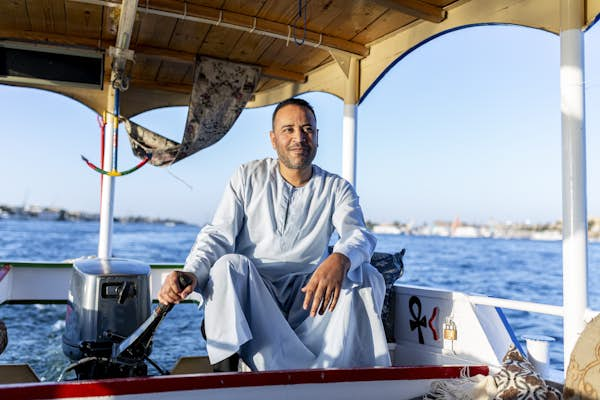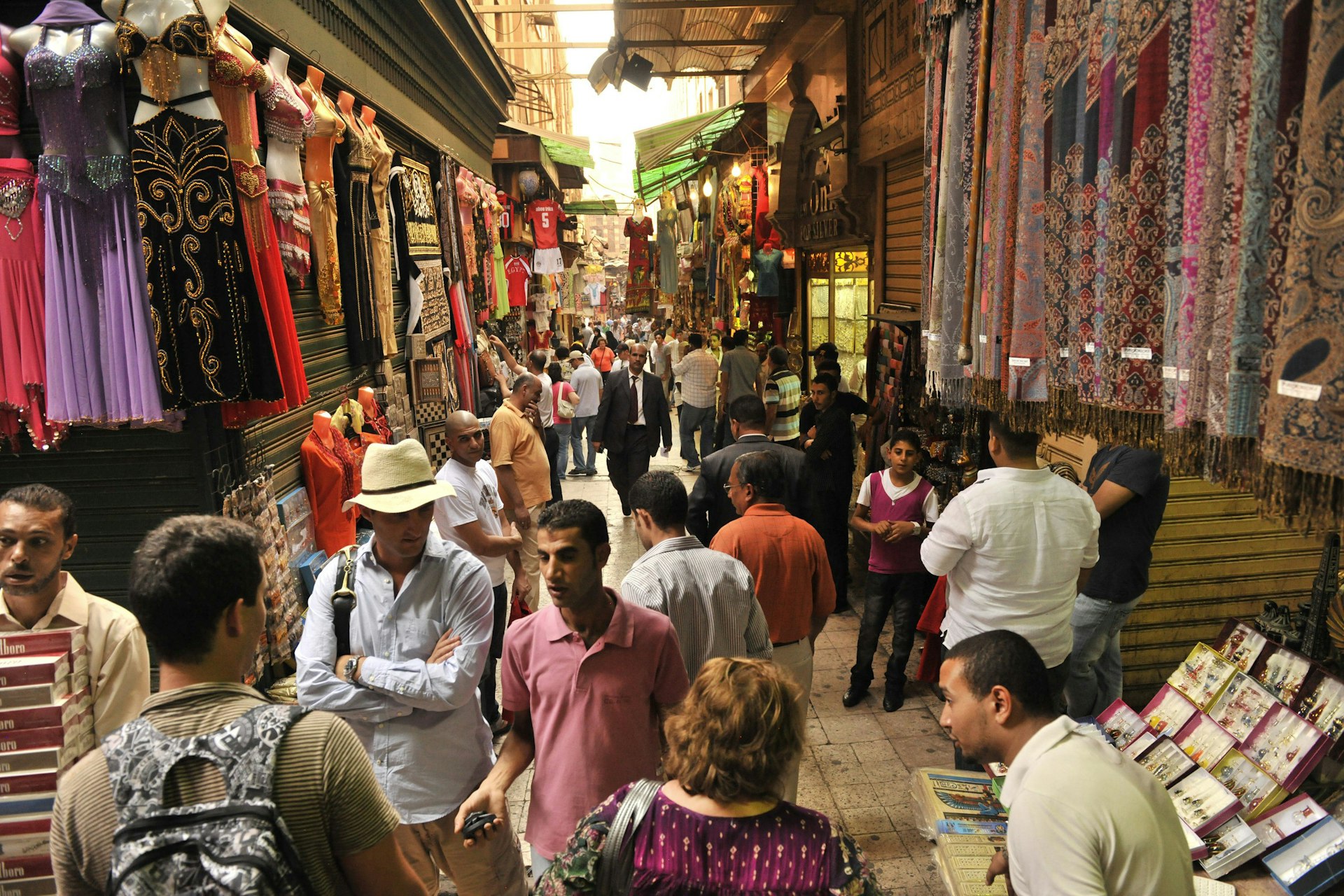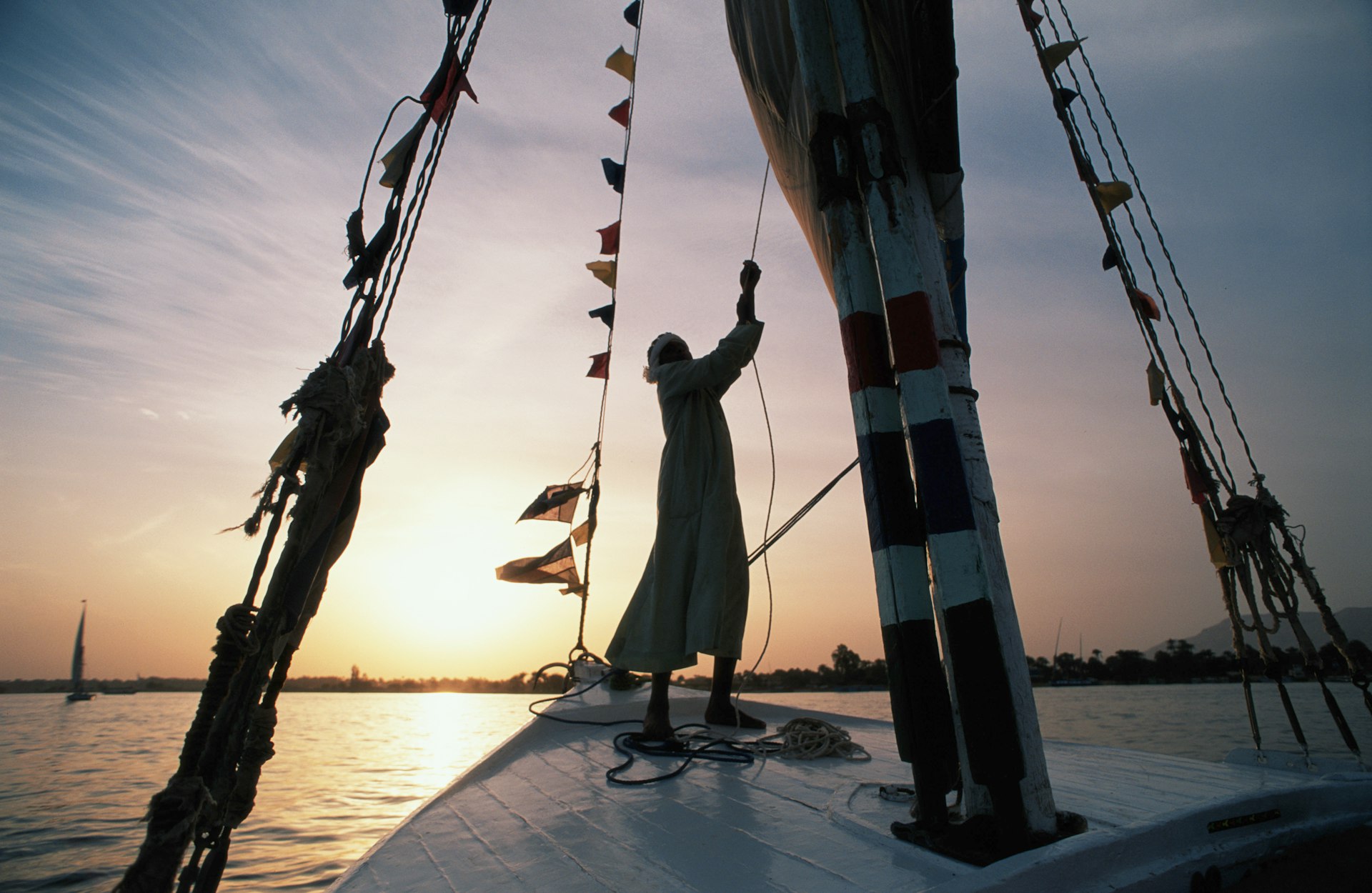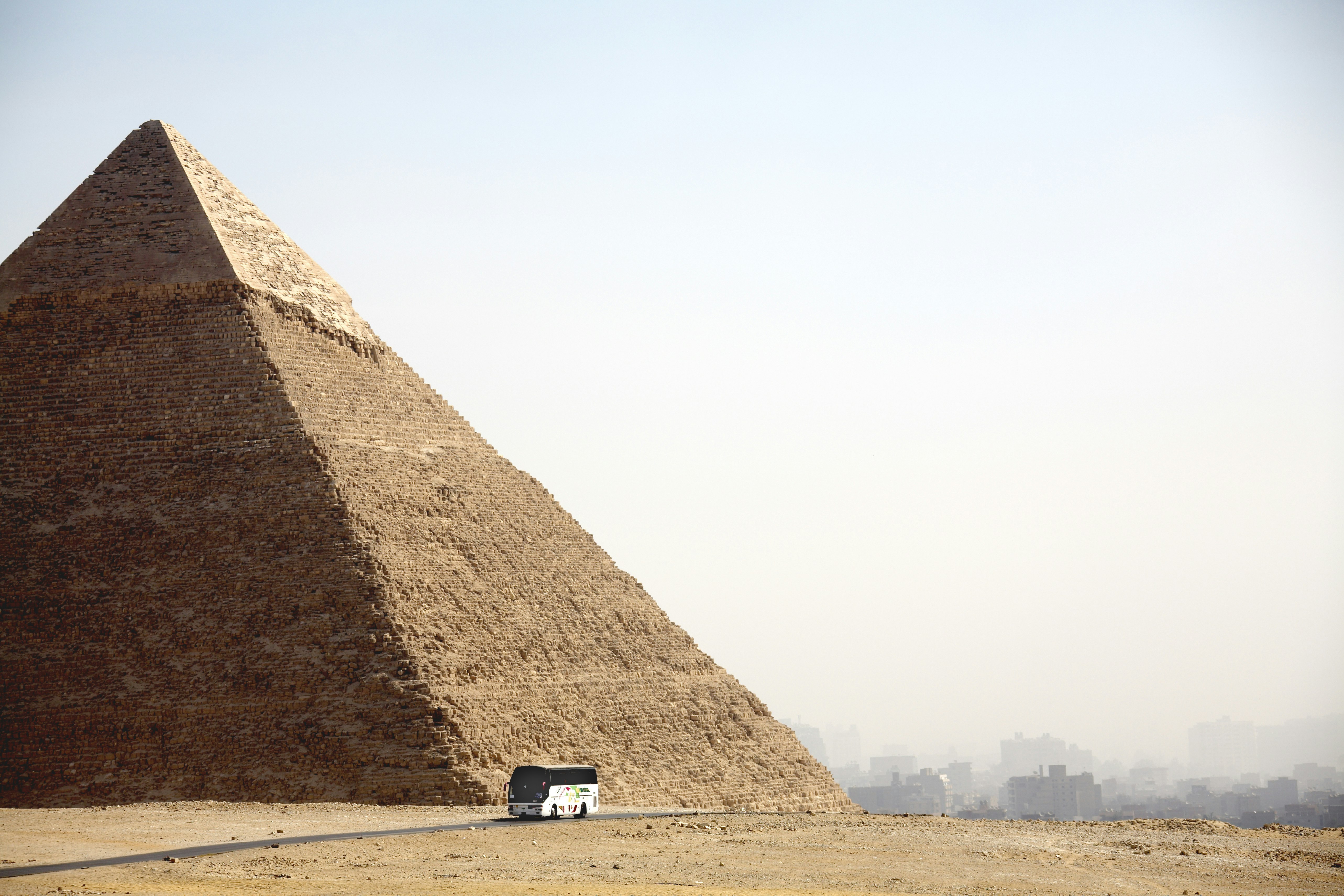
Egypt has an extensive and somewhat efficient overland transport system. For travel plans focused on the Nile, the palm-studded scenery of Nile Valley journeys is as much of a highlight as the destinations along the way.
While it’s possible to fly to the main cities in Egypt, you can reduce your carbon footprint by traveling overland by train, bus or boat.
 Start a train trip from Cairo © Peter Seaward / Lonely Planet
Start a train trip from Cairo © Peter Seaward / Lonely Planet
Travel by train to Egypt’s Nile Valley and the Mediterranean
The train is the most straightforward way of traveling along the Nile Valley, linking the capital of Cairo to Luxor and Aswan to the south and Alexandria to the north.
Both “Special Service” and the considerably cheaper “Speed AC Spanish” trains have comfortable first- and second-class air-conditioned carriages. Newer rolling stock on “Special Service” trains means that tickets are more expensive, but the amenities are similar.
From Cairo, take the 8am departure for the most scenic train trip heading up the Nile. It is 11 hours to Luxor and 14.5 hours to Aswan. Doing the journey in reverse, the 5:30am and 7:30am trains from Aswan and the 8:40am and 9:10am departures from Luxor are the trips to choose for views. See selected train schedules and book tickets on the Egyptian Railways website, though the site often has technical glitches that mean booking in person at the train station is easier.
Egypt also has overnight sleeper trains, run by Abela Trains. The sleeper trains run nightly from Cairo to Luxor and Aswan and vice versa.
Unfortunately, Egypt’s rail network has a higher accident rate than many other countries, though the government is starting to modernize the system after several high-profile deadly collisions.
 Travel by cruise boat or felucca on the Nile River in Egypt © Nicholas Pitt / Getty Images
Travel by cruise boat or felucca on the Nile River in Egypt © Nicholas Pitt / Getty Images
Take a Nile cruise
There’s no better way to make the journey part of your trip than by taking a Nile cruise. The most popular route is the stretch of river between Luxor and Aswan, with options for all budgets and levels of comfort.
Large cruisers
Cruise boats typically make the Luxor-Aswan leg a three-night trip with visits to Edfu’s Temple of Horus and Kom Ombo Temple along the way. This is the no-effort-necessary Nile option, just board the boat, and everything is organized for you. On the downside, less time than you think will be spent actually cruising, and you’ll be visiting the sights as part of a big crowd.
You can usually grab a cheaper cruise deal by booking once you’re in Egypt, but if there’s a particular boat you want to cruise with on a specific date, then book ahead.
The best time to visit Egypt
Dahabiyas
Dahabiyas (large sailing boats) were the original Nile transport for 19th-century travelers. Modern dahabiyas provide a more personalized alternative to the big cruisers, taking only about 10 and 20 passengers. Itineraries operate between Esna and Aswan and include stops at villages and pharaonic sites that larger cruise boats don’t visit.
Because there are fewer options, dahabiyas are best booked early. Try Nile Dahabiya or Nour El Nil.
Feluccas
For close-up Nile journeys complete with sleeping on deck under the stars, hop aboard a felucca (open-topped sailing boat). Overnight felucca trips begin from Aswan (to follow the current) and take three nights to Esna, two nights to Edfu or one night to Kom Ombo, but you’re at the mercy of Mother Nature and the winds, so you might not make it as far as you expect.
Organize felucca trips on the ground in Aswan. This can take a day or two to arrange, so if you don’t have time, prebook with Captain Jamaica and Aswan Individual, two reputable Aswan felucca operators.
Grab a taxi to visit out-of-the-way sights
Most taxi drivers (or private drivers hired through hotels) are more than happy to head out of town on day trips, such as to Saqqara from Cairo or to the Temples of Abu Simbel from Aswan.
In the Sinai, where there is no public transport between the South Sinai resort towns and St Katherine in the mountains, taxis are a good alternative to taking a group tour.
For out-of-town journeys, agree the price with the driver beforehand.
 Buses go to Egypt’s main cities and secondary destinations away from the Nile © Andrew Holt / Getty Images
Buses go to Egypt’s main cities and secondary destinations away from the Nile © Andrew Holt / Getty Images
Ride the bus to towns further from the Nile
Buses are the best public transport option for reaching towns that aren’t on the Nile, and they run between the main destinations for travelers with several departures daily on major routes. If you’re heading to the Western Desert oases, West & Mid Delta Bus Company is the only operator, so expect only a couple of departures daily and plan accordingly.
Air-conditioned coach-style buses have slightly cramped seating, and taller travelers may have issues on long-distance routes. The “deluxe” services run by Go Bus have more leg space. Go Bus also has an easily navigable website with schedules and booking services in English, which has made it the go-to company for travelers who don’t speak Arabic.
Microbuses (called micros; 14-seater minibuses) run on even more routes than the big buses and can be useful for shorter journeys. Unlike buses, there are no fixed schedules; they leave when full. Be aware that micros can be jam-packed and are renowned for speeding.
The best places to visit in Egypt
Accessible transportation in Egypt
Egypt’s public transport is far from inclusive. Buses and trains have high entrance steps, and micros are a squashed no-go. That said, things are beginning to change. Egyptian National Railways says it’s bringing ramp access to stations, dedicated ticket counters for disabled travelers and allocated seating spaces on trains. However, it will take time to come into practice.
Hiring a private driver is affordable in Egypt, so it is possible to travel independently. For a wheelchair-accessible vehicle, book a private tour. To get on the river, the Nile cruiser M/S Amarco has been completely refitted for accessibility, with lift access to all decks and four cabins adapted for wheelchair users.



